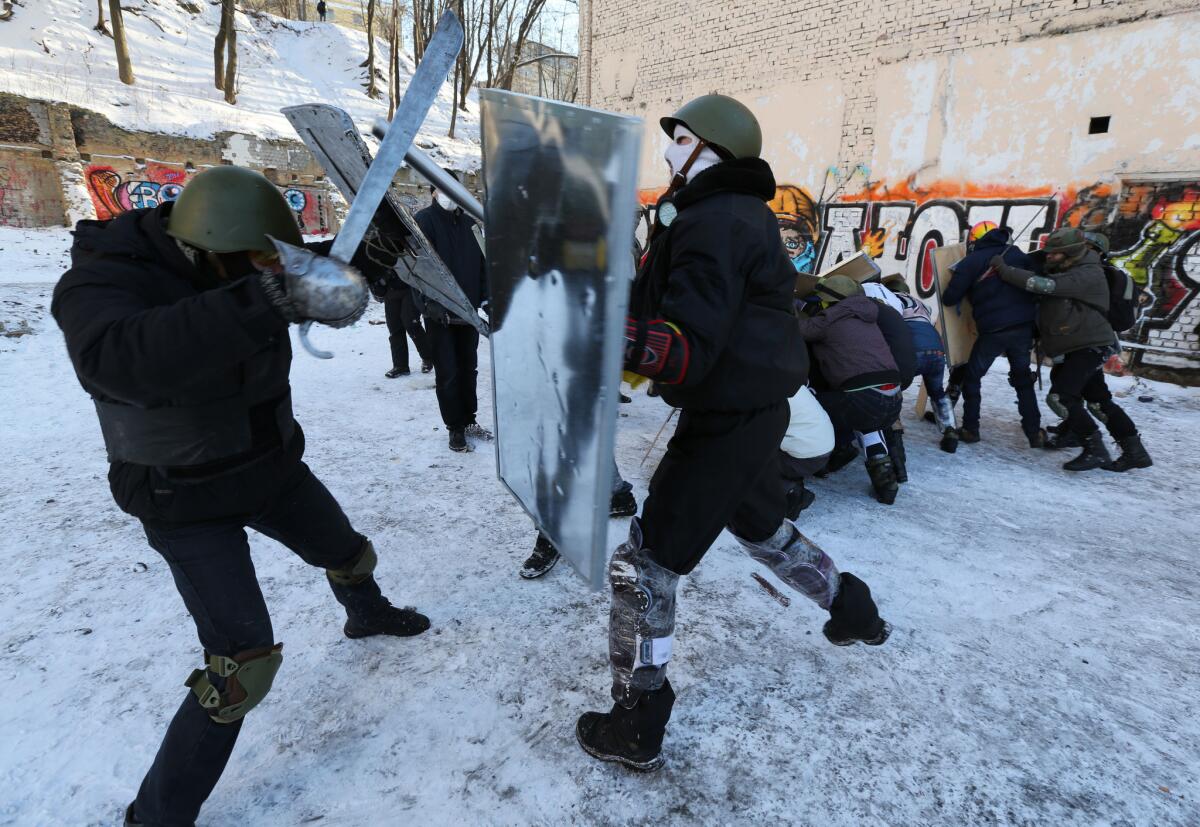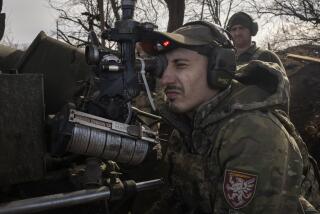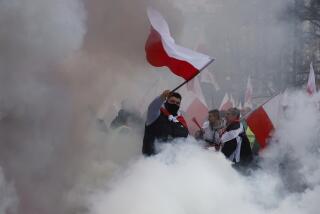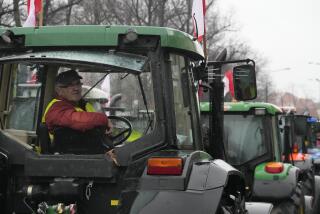Ukraine parliament offers protesters conditional amnesty

KIEV, Ukraine – Ukraine’s parliament on Wednesday voted to grant a conditional amnesty to more than 100 antigovernment protesters arrested in recent days, but the move failed to keep demonstrators outside from preparing for the possibility of more violent confrontations with security forces.
The amnesty, which would require protesters to vacate buildings they seized during several days of demonstrations against President Viktor Yanukovich’s government, was immediately rejected by opposition leaders seeking an unconditional release.
“What they have just voted on is a law about hostages,” opposition leader Oleg Tyagnybok told reporters. “The authorities have officially confessed they were taking hostages.”
Legislators had debated for hours whether to offer amnesty as a way to help end violent street clashes between protesters and police in Kiev, the capital, the seizure of government buildings and other forms of protest in the country. At least four activists have been killed, hundreds of people have been hurt and dozens arrested during the protests.
Then late Wednesday, Yanukovich reportedly met with his party faction in parliament, where the party holds a majority, and threatened to disband the body if the amnesty was not approved. The measure passed and the session was adjourned.
Parliament’s vote came a day after Ukraine’s prime minister, Mykola Azarov, tendered his resignation, giving the political opposition a major victory in the two-month standoff with the government. The protests began when Yanukovich rejected trade ties with the European Union in favor of a deal with Russia.
Before Wednesday’s vote, former President Leonid Kravchuk, appearing as a special guest speaker, told lawmakers that the country was “on the verge of civil war.”
“It is a revolution,” Kravchuk said. “It is a dramatic situation in which we must act with the greatest responsibility.”
Opposition leaders have insisted that the release of protesters should be unconditional. Many protesters continued demanding the president’s resignation.
Vitali Klitschko, an opposition leader and former world heavyweight boxing champion, told reporters before the vote that offering to free the protesters on condition that they go home was unacceptable.
“People took to the streets because they want to change the situation in the country,” Klitschko said.
He reiterated that the protests would end when the opposition’s demands were met, including early elections for the presidency and parliament.
Meanwhile, members of opposition self-defense groups, which were declared illegal by the Interior Ministry, were bracing for more violence in Kiev, both along barricades on Grushevsky Street, the scene of violence last week, and around Independence Square, where the opposition is based.
A few yards from the square, by a wall with red-lettered graffiti reading “Revolution,” a squad of about 20 young men checked their gear. The equipment included goggles, helmets and ice-hockey and roller-skating gear as well as baseball bats, metal rods, wooden sticks and makeshift shields evoking the movie “Gladiator.”
Some were yelled at by a self-defense instructor for delivering halfhearted blows on one another’s shields.
“A [riot cop] will not be beating you lovingly on the shield, he will be aiming for your head,” the instructor said. “This is not a primary school playground. Get your act together and obey the commands!”
An hour earlier, another group of at least 100 young men similarly dressed and armed marched from Independence Square to the barricades on Grushevsky Street and back as if parading themselves.
Earlier in the day, two radical protest groups had clashed in the Agriculture Ministry building, one trying to push the other out and vacate the captured building as part of a compromise with the government. Three people were reportedly injured.
Few protesters were ready to accept any compromise with the authorities unless it included Yanukovich’s resignation.
“I don’t believe Yanukovich and no one here does either,” Yevgeny Silkanov, a 57-year-old miner from Yenakiyevo, Yanukovich’s hometown in eastern Ukraine, said in an interview. “If we agree to his half-measures and go home, he will order his police to arrest us one by one in our homes and we will never get back together to fight him again. If our leaders make a compromise with him we don’t like, we will find new leaders.”
Svyatoslav Virsta, a 51-year-old painter from Chernovtsy, climbed onto the charred roof of a burned police bus with an easel and a canvas to depict the area covered with layers of ice from water cannons and the rows of policemen in the vicinity.
“My paints are freezing but not the hearts of these men,” the painter said. “Nothing can make them go except [Yanukovich’s] resignation.”
More to Read
Start your day right
Sign up for Essential California for news, features and recommendations from the L.A. Times and beyond in your inbox six days a week.
You may occasionally receive promotional content from the Los Angeles Times.






